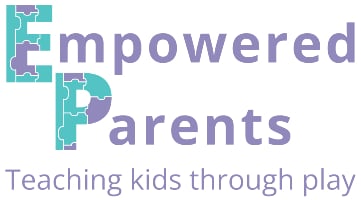Every parent wants their child to succeed and thrive in the world. Although there is no magic formula, parents want to feel they have done the best they can.
Here are the 10 best tips for parents of preschoolers, written by an early childhood educator.
How Can I Help My Child Succeed in School?
Success in school starts with laying a solid, balanced foundation from an early age.
There is no easy formula for parenting, but there are simple strategies you can follow that will benefit your children for a lifetime.
10 Tips for Parents of Preschoolers to Help Your Child Succeed In School
Here are 10 tips every parent should follow. These ideas are geared towards raising well-rounded children who are happy, confident, self-motivated and independent.
The more you follow these principles, the better chance your child will have of developing to his full potential and coping well at school.
1. Let Your Children Play
Play is the most underrated form of learning and the most important one.

Your child should be playing every single day.
The amount of learning that happens every time your children are in their natural state – engaging in free play – is massive.
Today’s lifestyle has become chaotic and school-age children have schedules that were unheard of in the past.
You may have them signed up for 3 excellent extra activities a day, but if that means there is no time for free play, you might want to rethink the afternoon routine.
2. Read Every Day
Reading to a child opens her world in so many ways.
I have always said there are two types of parents. Those who read to their children and those who don’t.
Reading, apart from being the perfect time to bond, teaches vocabulary, problem solving, creativity, thinking skills, emotional maturity and so much more.
Just 5 to 10 minutes a day is all you need. It can be the perfect bedtime routine.
Whether you are reading to your 3-year-old or listening to your 8-year-old read to you, make sure to make the most of the time by using questions that encourage thinking.
3. Instil Independence
Independence is the number 1 quality any child needs to succeed in the world.
This may seem obvious, but it can be too easy to do too much for your child. Parents want to help and guide their children and be there for them every step of the way.
Sometimes being there just means watching from a distance.
Here are some ways you can instil independence:
- Allow your children and their friends to resolve most of their conflicts amongst themselves.
- Understand that school is their territory. Drop them off and give them a confident goodbye kiss and “have a nice day”. There is no need to walk your Grade 1 in day after day to make sure they’re ok. It sends a subtle message that they are not safe without you.
- Encourage doing some homework independently and packing their own bag every day.
- Give chores from a very young age. Let your children develop responsibility at home by making a bed, taking cups to the sink and packing away toys.
- If your child has a problem at school, discuss how to handle it the next time it happens and offer coping strategies. Resist reporting every incident to the teacher or your child will rely on you and not learn to take action. Serious concerns or repeated negative behaviour should be reported if it does not get resolved.
4. Build Grit
Watch this short TED Talk by Angela Lee Duckworth. It is all about her research in determining the best predictor of success.
And it is a little four-letter word called…
Grit!
In her words:
Grit is passion and perseverance for very long-term goals. Grit is having stamina. Grit is sticking with your future day-in-day-out, not just for the week, not just for the month, but for years. And working really hard to make that future a reality.
I just love it. Please take the time to watch it:
5. Allow Your Child to Be an Individual
Every person is different and every person has different strengths, weaknesses, interests, passions, etc. Being allowed to be an individual is one of your child’s basic emotional needs.

School is an environment that tends to be quite focused on certain areas – academics, sports, etc. Some are changing and encouraging all forms of expression, including drama, music and the arts, to name a few.
School and the few years every person spends there is not the be-all-and-end-all of life. Let your children engage in the things they show passion for.
You might want to spend 10 extra minutes a day practising sight words with your struggling reader, but don’t forget to let him do his science experiments, or finish building his rocket or whatever else he is drawn to.
These are the things that he will probably gravitate towards in a career one day – and will provide the most value to him.
6. Allow Your Child to Experience Disappointment
The modern-day search for “happiness” has somehow led us to believe that our children’s every experience must be positive and children must never experience any unhappiness or distress.
Children must be allowed to experience their emotions fully, in order to learn how to cope with the many things they will go through.
Setting them up by removing all sources of stress will not help in any future situation where you are not there to manage it.
Happiness, excitement, sadness, frustration, anger, fear, contentment, relief, anticipation… Why would you want to remove any of these experiences? They are all part of life.
Being disappointed is not so serious. Children and adults are frequently disappointed. Not making it to the A team in tennis and feeling disappointed will disappear in time, and probably spur a desire to work harder and try again.
This is much less serious than not having the coping skills to deal with that disappointment and potentially having small disappointments escalate into huge sources of stress.
7. Understand Where Your Children Are Developmentally
I recently looked up some posts on Pinterest about reading and couldn’t believe how many people were interested in posts about teaching your child to read during preschool.
Everyone wants their children to do well and succeed. Pushing them to do things appropriate for older children is not the way to succeed.
For children to read, write and do maths, there is a long list of pre-reading, pre-writing and maths skills they need to master to lay the foundation first.
You probably can teach your 4-year-old to read, but only at the expense of many important foundational skills.
This is usually evident in the class when children who have been pushed too early start showing gaps later on.
Let your children be where they are. You don’t need to prepare your 4-year-old for Grade 1. You need to prepare your 4-year-old to be 4.
Otherwise, they are missing invaluable time that should be spent learning through play and not living life in the moment.
8. Make Your Children Accountable for Their Actions
It starts with a baby pushing a ball. If I tap the ball, it moves. This is called cause and effect.
Later on, it becomes, If I leave a mess on my bedroom floor, I will be expected to clean it up. Or If I hit my brother, there will be a consequence and I will have to apologize.
It’s an important life skill for children to be held accountable for their actions because adults will be held accountable. Adults who are unable to own their actions and always blame others are considered narcissists.
9. Put Things Into Perspective
Are you the parent who is up at 10 pm trying to figure out the last question in your child’s homework? Are you contacting all the class moms at 11 pm because your child will be in so much trouble if they leave out one question?
When you give up, do you write a letter to the teacher, followed by an email, explaining your frustration?
Relax. It’s only Grade 1. And you still have more than 10 years to get through.
Sometimes, school needs to be put into perspective. Sometimes you need to put the homework away when you are suffering through it at 11 pm because you had a family matter to attend to in the afternoon.
There is always tomorrow and you can’t do everything!
Did your child do badly on a spelling test? Life will go on.
Is your child repeating a grade because they need to mature and they’re a little behind? Trust me, they will forget about it long before the parents do. They will probably mature, make new friends and get on with life.
Sometimes, things just aren’t as serious as they feel in the moment.
You’re parents, not super-humans. Give yourselves a break!
10. Redefine Your Concept of Success
Lastly…
Is your idea of success when your child registers for one of the degrees on your approved list? Do you need them to get 90% in Maths to fulfil your dream for them?
Life is very different to how it was when I was young, or when my parents were young. Blogging was non-existent when I was at school and yet it is my career now. Many of the career options for your children do not even exist yet.
Success is a very fluid concept. As long as you do your best, your children are likely to become functional, competent adults. Then your job is done.
And with enough grit, they will worry about their own success!

